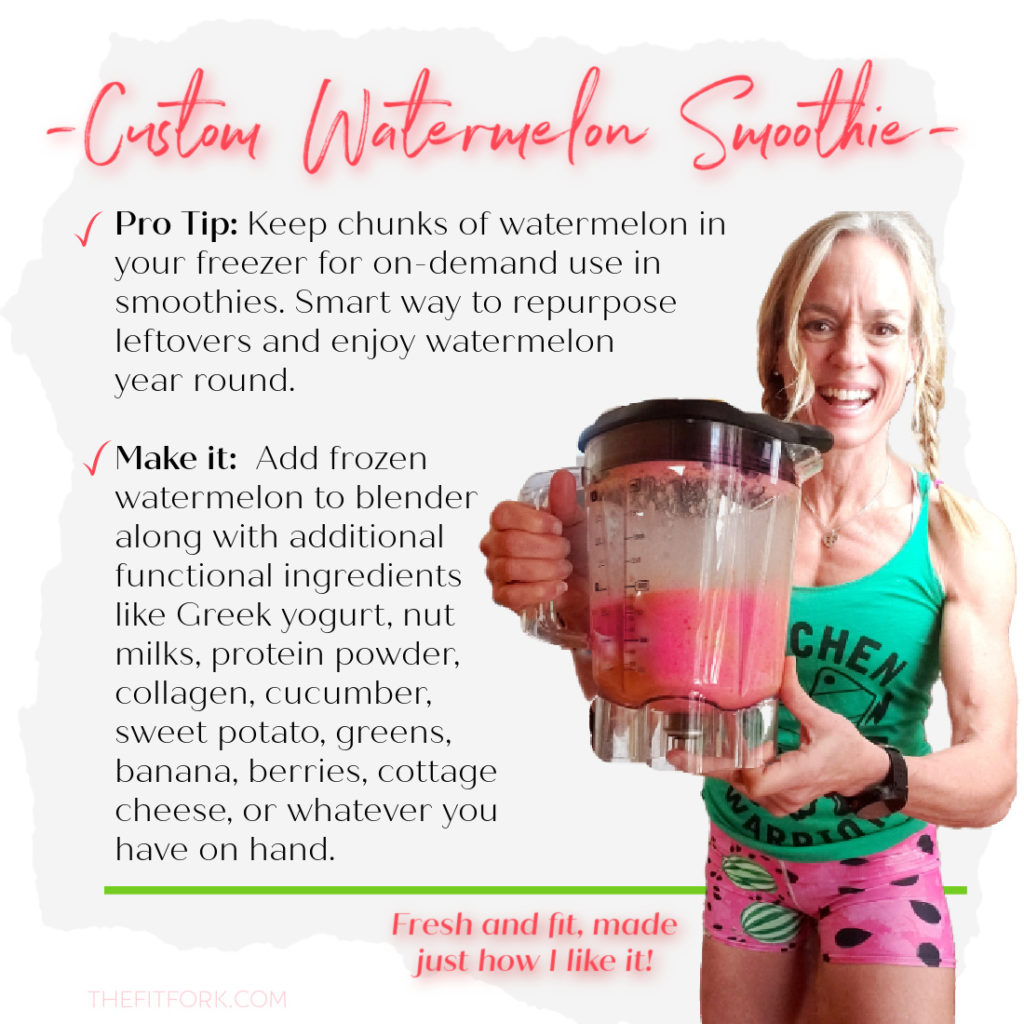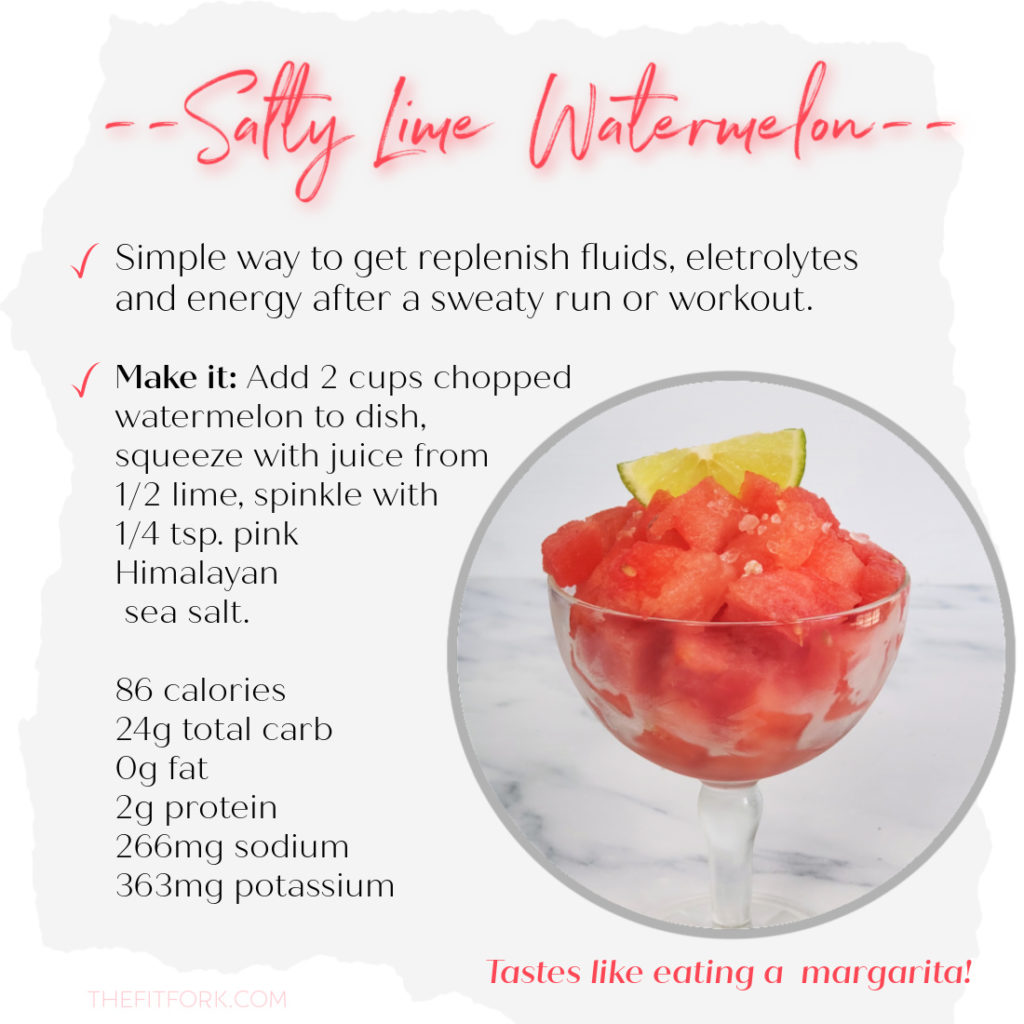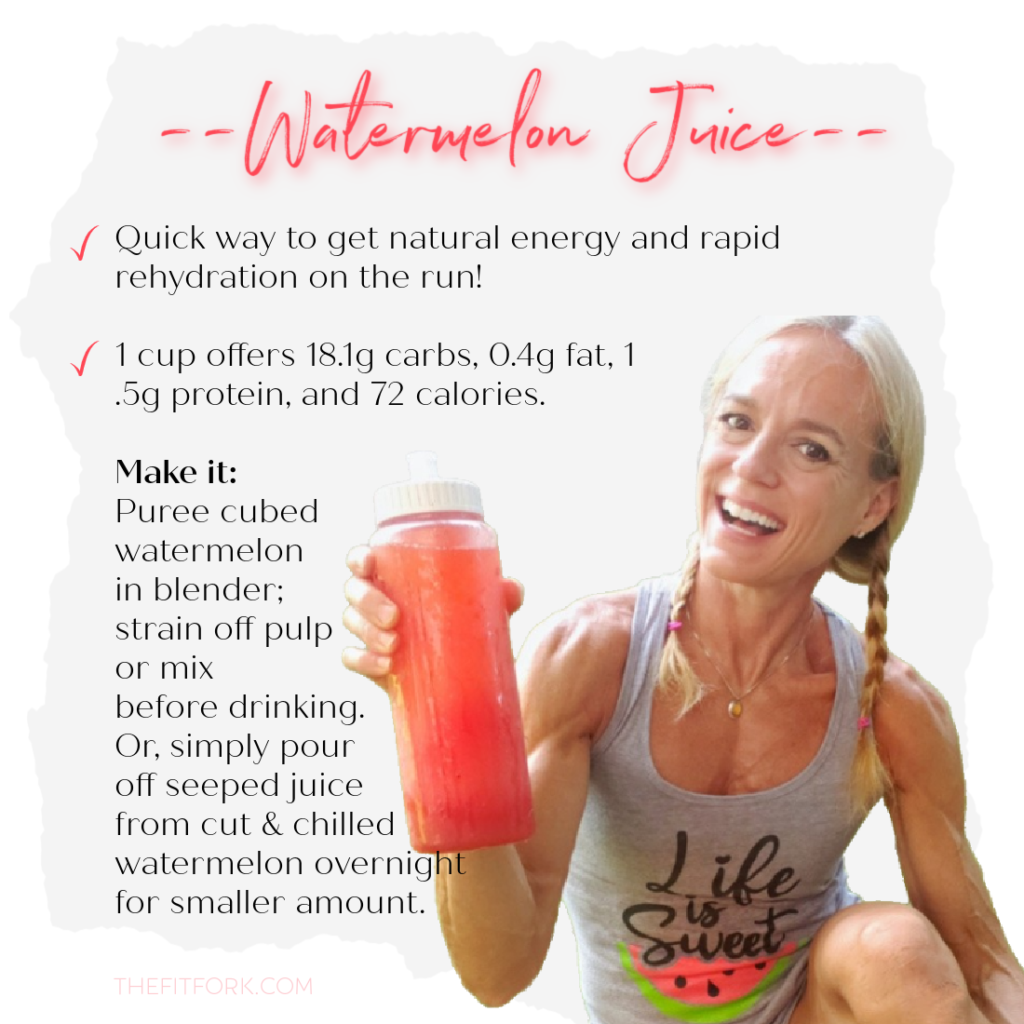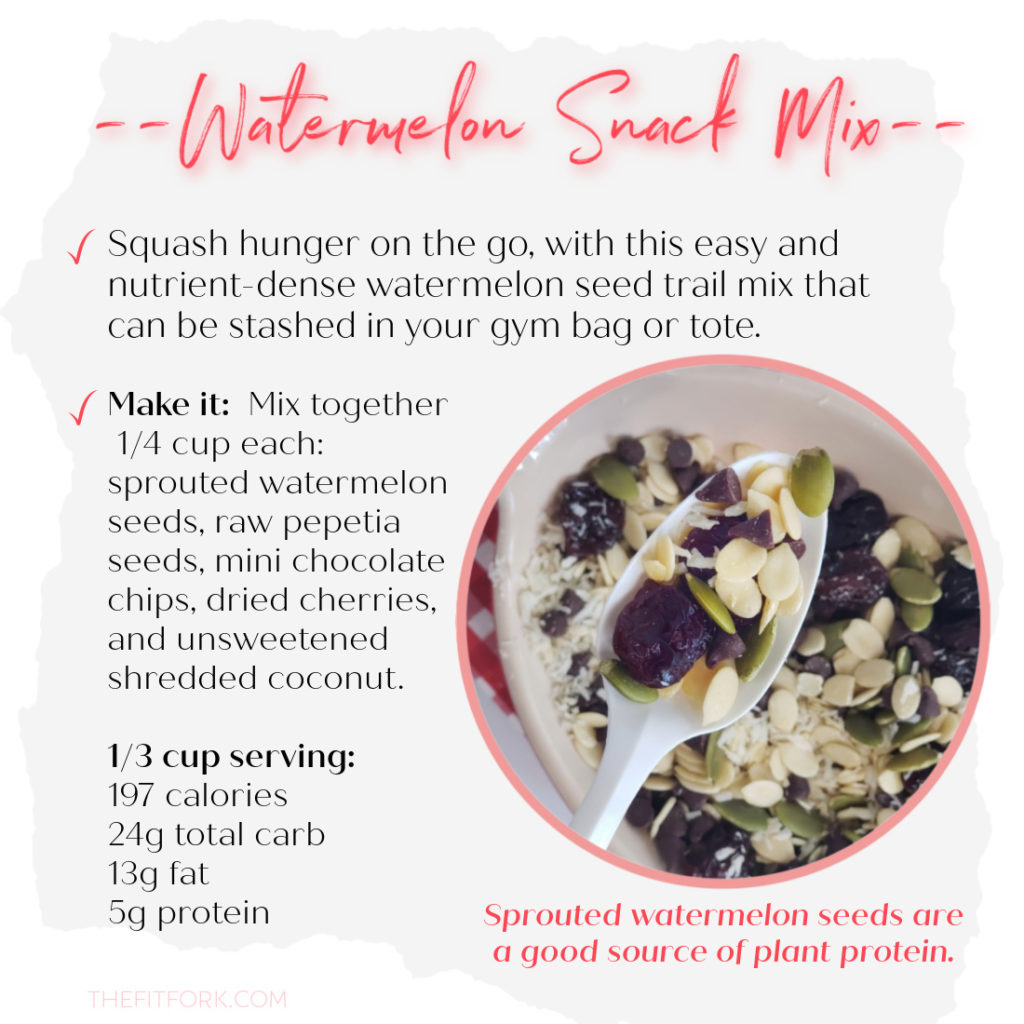This post is sponsored by Watermelon.org. However, all content, opinions, and enthusiasm for watermelon remain my own!
Runners, triathletes, hybrid athletes, gym rats, fitness enthusiasts, parents with kids in sports, and everyday active folks who are always on the go – I’m talking to YOU!
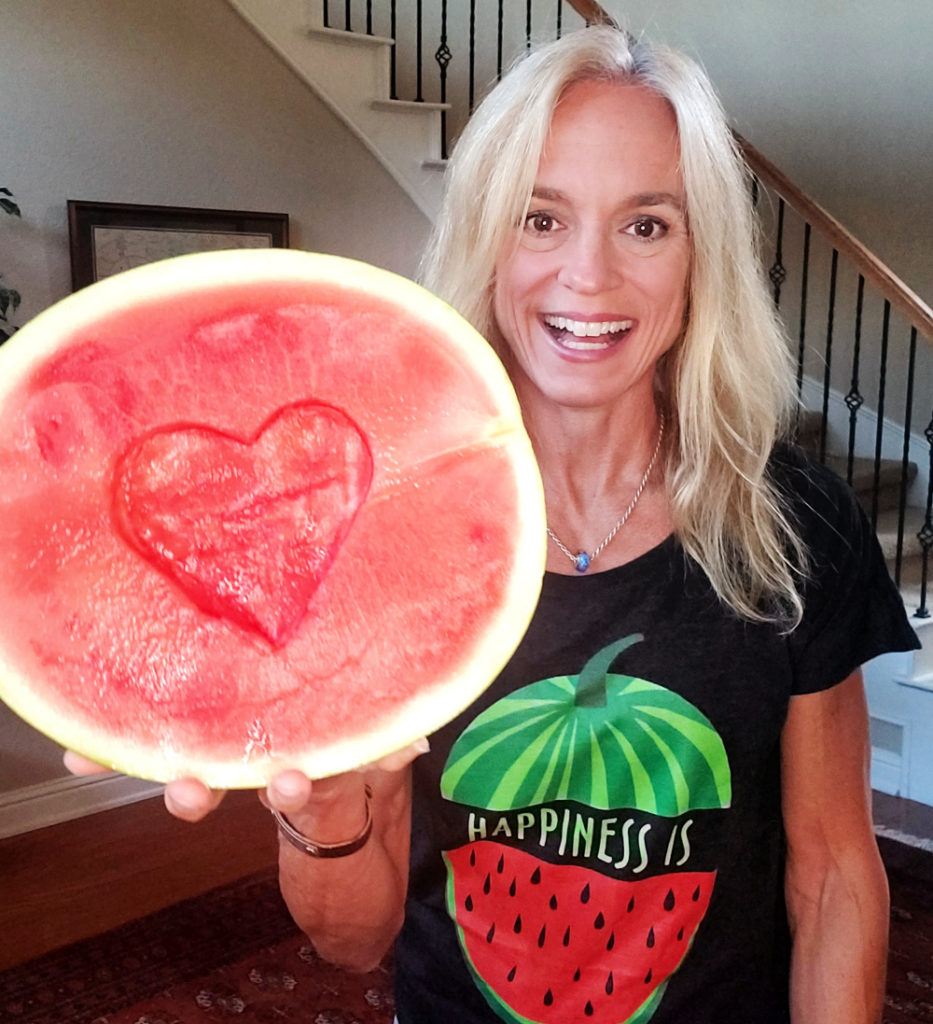
Watermelon is more than just the quintessential fruit of summer – it’s a highly functional food that can (and should) be enjoyed all year ‘round in an athletes training diet including those who are striving to optimize their health and wellness though consistent physical activity.
So, why watermelon? What are watermelon health benefits and why is watermelon for runners, athletes and everyone on a fitness journey such a good thing?
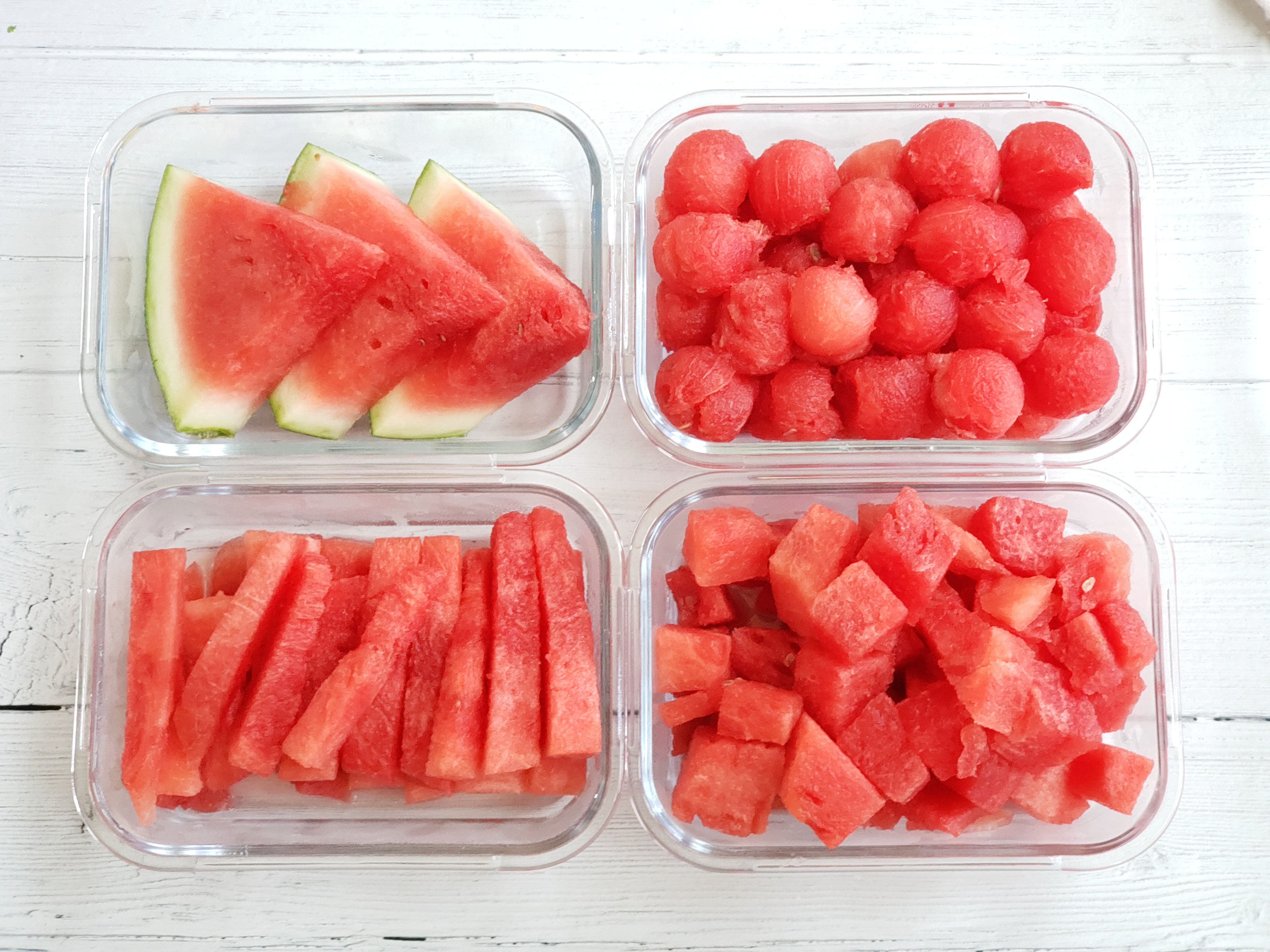
Fresh and Economical: Watermelon is a fresh, whole food that doesn’t come processed and wrapped up in consumer packaging. Ounce for ounce, watermelon is also the most economical fruit purchase in the produce department. You can even eat the entire watermelon – flesh, seeds, juice, AND rind! All of these perks a win for your body, budget, and the environment.
Full of Fluid: Watermelon has a water content of 92 percent! This means watermelon is a fast way to hydrate before a run or workout or top off your tank afterward. Compared to some of my other favorite snacks (which all have their own inherent benefits, BTW), watermelon is the winner of nearly holding its own weight in water. For example, a banana is 75 percent water, raisins are just 20 percent water, and most nuts only have a water content of 5 percent water.
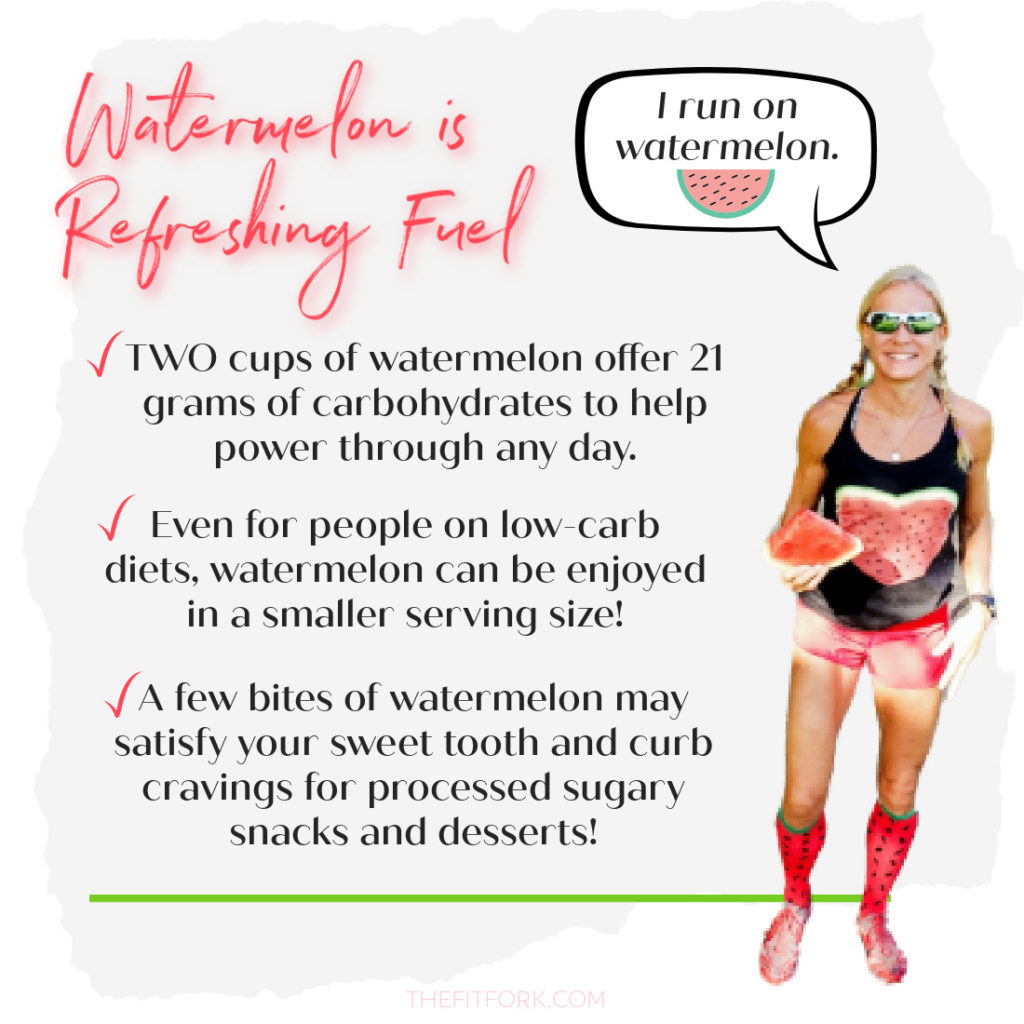
Functional Fuel: Watermelon is extremely functional when it comes to providing nutrients to support a balanced and active lifestyle. For example, two cups of watermelon (80 calories) offer 21 grams of carbohydrates to help you power through any day, whether running a marathon or just running errands around town. In some circles, carbs get a bad rap, and while I’m not a fan of most highly-processed and refined-sugar carbs, I do rely carbohydrates sourced primarily from fruits, vegetables and whole grains. Endurance athletes need properly-timed carbs to provide sustained energy for the long haul.
However, if you are not logging massive miles and need less carb energy (or perhaps are on a lower-carb diet for your lifestyle), watermelon REMAINS a fruit that can be enjoyed. Because it’s a big volume fruit (big serving size versus a denser fruit like, say, dates), the carbohydrates are “spread out.” So, many consider watermelon a low-carb fruit, especially when enjoyed mindfully. A small portion of watermelon can even be eaten and still kept compliant with a keto diet! For me, the little bit of natural sugars from watermelon help soothe my sweet tooth and curb cravings.
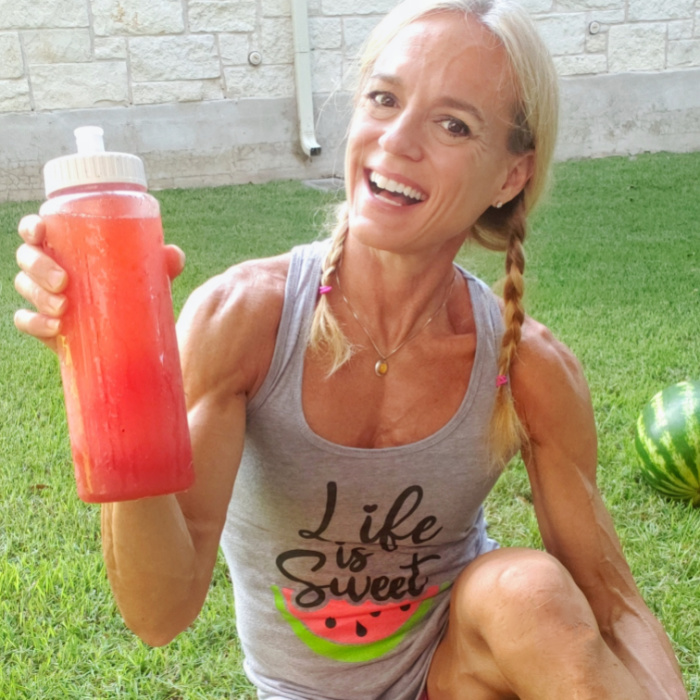
Watermelon Electrolytes: Endurance athletes (and everyone, in fact), need electrolytes in their diet to help balance water in the body. Electrolytes are found in body fluids like blood, urine, and tissues and also keep pH level in check, move nutrients into cells, move waste out of cells, keep you from muscle cramping, help your nerves and brain, and ultimately ensure that all bodily systems are operating optimally.
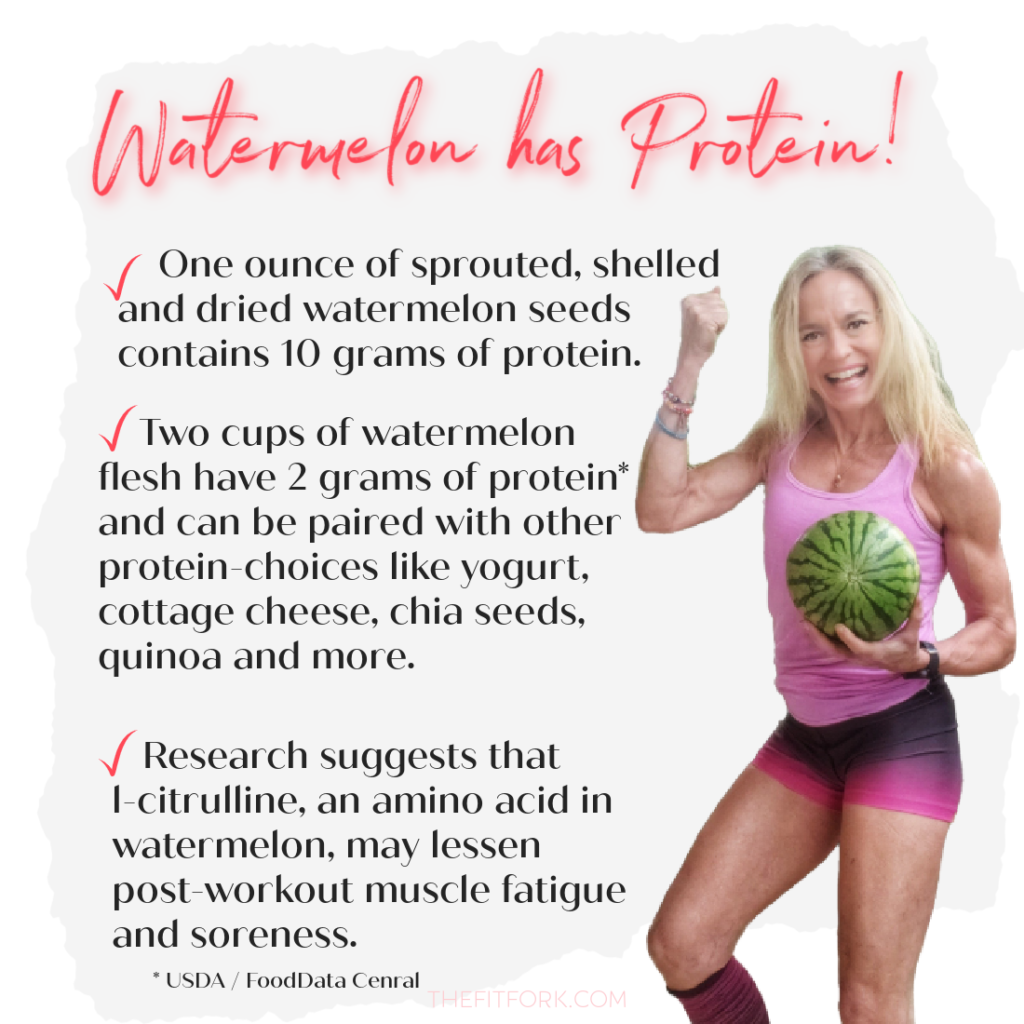
Watermelon Protein: Believe it or not, watermelon is a source of plant protein. YES! There is protein in watermelon, whoohoo! Protein supports an active lifestyle by promoting tissue repair, exercise recovery, injury prevention, immune function and the production of oxygen-carrying red blood cells.
One ounce of sprouted, shelled and dried watermelon seeds contains 10 grams of protein – that’s a nice amount for a post-workout snack! The flesh of watermelon also has a more modest amount, but still more that you’d guess! Two cups of watermelon provide 2 grams of protein and, for a boost, can be paired with other protein-choices like yogurt, cottage cheese, chia seeds, quinoa, seafood, and more.
Better Workout Recovery with Watermelon: Two cups of watermelon also provide between 286mg to 1266mg of L-citrulline, an amino that boosts nitric oxide production in the body. Nitric oxide helps arteries relax and work better, which improves blood flow throughout your body. For athletes, research is suggesting that the juice from watermelon can help to reduce recovery heart rate and muscle soreness in the 24-hour window after exercise.
Watermelon is Simple: Some of my favorite ways to enjoy watermelon in a manner that supports my nutrition goals as a runner and athlete are SO SIMPLE. Eat it plain with salt and lime juice, freeze chunks to use in smoothies, make watermelon seed trail mix, and drink the juice!
I’ve also created and used other watermelon race fuel and watermelon recovery recipes for runners:
Concentrated Electrolyte Ice Cubes for Runners
Warm spiced Watermelon Lemonade for Winter Workout Recovery
Watermelon, Beet and Chia Shot Blocks for Endurance Fuel
And, finally, you can actually WORKOUT WITH WATERMELON – did you see my recent Fit & Fresh Freestyle Watermelon Workout?
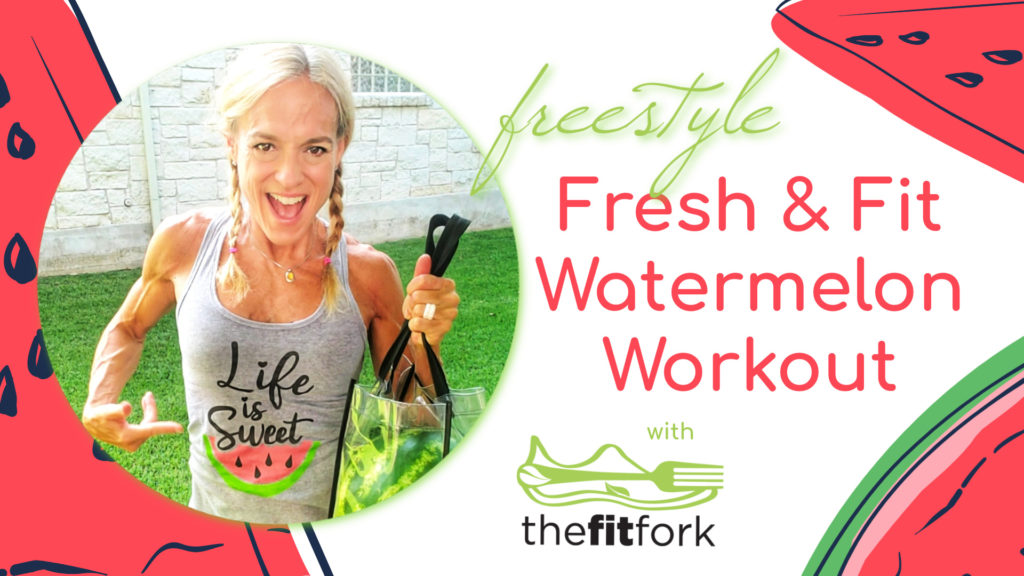
For EVERYTHING you ever needed to know about watermelon and MORE, visit Watermelon.org and @watermelonboard on Instagram!

